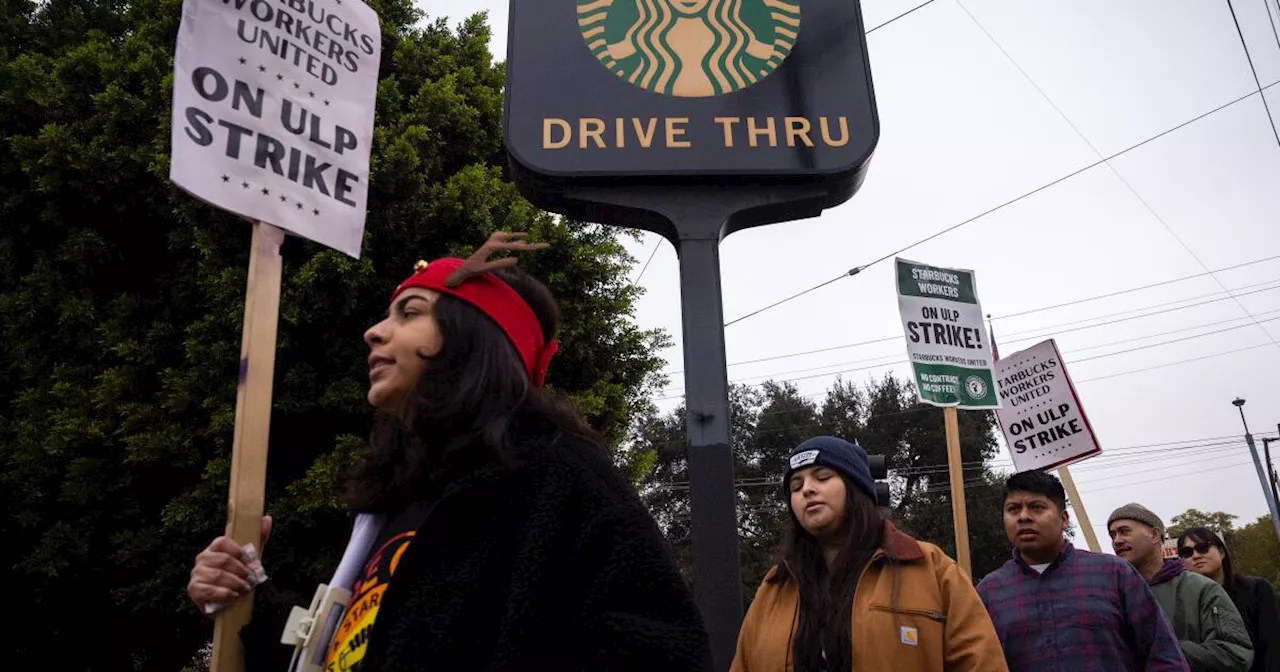The recent strikes at Starbucks and Amazon warehouses highlight a deeper issue: the fundamental breakdown of work conditions in the United States. The text explores how unpredictable scheduling, lack of social mobility, and the erosion of a fair work-life balance are affecting Americans across various industries.
Chances are slim that the dual strikes at Starbucks stores and Amazon warehouses around the country disrupted your holiday season. By most accounts, packages arrived on schedule, while consumers jonesing for Iced Brown Sugar Oat Milk Shaken Espressos almost certainly managed to find sugar and succor elsewhere. Still, the issues at the heart of the strikes offer a way into understanding how fundamentally broken the terms of work are in the United States.
Whether you log shifts behind a counter, work a classroom or factory floor or sit at a desk, the current battles over opportunity have not only ensnared more Americans than ever, but have undercut the social mobility that was once essential to America’s concept of itself. In 2023, an economic opportunity poll by Gallup found that 39% of Americans believed that they were failing to get ahead despite working hard. That figure in 2002: 23%. The failure of hard work to pay off in America makes our communities wobbly, our faith weak, our lives lonely, our politics toxic and our relationship with work masochistic and unsustainable. In lobbying for a higher quality of life, for example, one of the top grievances raised by striking Starbucks workers was unpredictable scheduling, a popular practice in which employers don’t set worker schedules more than a few days (or even hours) in advance. “Employees in lower-wage industries are increasingly at the mercy of scheduling algorithms designed to maximize efficiency and minimize labor costs,” Rebecca Plevin noted last year. “When staffing doesn’t match expected customer demand, workers might be called in at the last minute or sent home early.” Anyone with email on their phone knows how work can bleed into off-hours, but for those working second or third jobs, enrolled in training, college or certification courses, providing steady childcare or simply hoping to spend time with family or friends, a lack of predictable hours makes the basic patterns of life errati
LABOR STRIKES WORK CONDITIONS SOCIAL MOBILITY UNPREDICTABLE SCHEDULING AMERICAN ECONOMY
United States Latest News, United States Headlines
Similar News:You can also read news stories similar to this one that we have collected from other news sources.
 Here's Why We Know Work Requirements for Medicaid Don't WorkLaura Harker is a Senior Policy Analyst with the Center on Budget and Policy Priorities's Health Policy team.
Here's Why We Know Work Requirements for Medicaid Don't WorkLaura Harker is a Senior Policy Analyst with the Center on Budget and Policy Priorities's Health Policy team.
Read more »
 Honda, Nissan aim to finalize merger terms by June- NHKHonda, Nissan aim to finalize merger terms by June- NHK
Honda, Nissan aim to finalize merger terms by June- NHKHonda, Nissan aim to finalize merger terms by June- NHK
Read more »
 Lithium Producers Seek Better Terms in 2025 Supply TalksLithium producers are pushing for better terms in annual supply negotiations for 2025, aiming to rein in customer discounts after a challenging year for the battery material. Prices are stabilizing after a sharp decline, and producers hope for a mild improvement in market conditions.
Lithium Producers Seek Better Terms in 2025 Supply TalksLithium producers are pushing for better terms in annual supply negotiations for 2025, aiming to rein in customer discounts after a challenging year for the battery material. Prices are stabilizing after a sharp decline, and producers hope for a mild improvement in market conditions.
Read more »
Critical One and Star Minerals Announce Revised Terms of AgreementCritical One Energy Inc. and Star Minerals have revised the terms of their agreement. Star Minerals has paid an initial sum and issued shares, with the remaining cash payment due in 2025. This aligns with planned exploration and drilling activities at the Cobra Uranium project.
Read more »
Company Announces Amended Terms for Private PlacementA company has announced the amendment of private placement terms, including the issuance of up to 20 million units and the elimination of warrant expiry acceleration. The offering is expected to close on December 31, 2024, subject to regulatory approvals and other conditions.
Read more »
 X's New Terms of Service Drive Users to AlternativesElon Musk's X (formerly Twitter) has implemented new terms of service that are causing some users to leave the platform. The controversial terms grant X expansive permissions to use user data for AI model training and impose potential liabilities for excessive usage. Many users, including celebrities, are migrating to platforms like Bluesky, citing concerns about privacy and content ownership.
X's New Terms of Service Drive Users to AlternativesElon Musk's X (formerly Twitter) has implemented new terms of service that are causing some users to leave the platform. The controversial terms grant X expansive permissions to use user data for AI model training and impose potential liabilities for excessive usage. Many users, including celebrities, are migrating to platforms like Bluesky, citing concerns about privacy and content ownership.
Read more »
